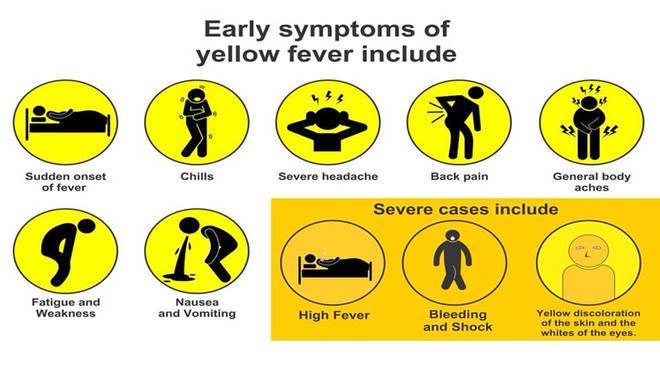It has emerged that the recent outbreak of Yellow fever in Ebonyi State “may have been going on for a few months undetected” by local health authorities.
At least, 20 people have since died from a disease that can be prevented with a single shot of free vaccine in the routine immunisation schedule.
A recent investigation by the Nigeria Centre for Disease Control found cases that fit the definition of Yellow fever from as far as May 1 to August 7.
The 20 people who died within the period were in Izzi council area of Ebonyi state.
“It was too late to collect samples for confirmation from these cases,” NCDC director-general, Chikwe Ihekweazu, said in a statement.
Reports of “cases and deaths from fever of unknown origin” in Izzi prompted investigation by Ebonyi public health authorities, with support from the NCDC.
A rapid response team, in partnership with the World Health Organisation, has been on ground in Ebonyi.
By July 31, tests at the NCDC’s national reference laboratory confirmed three cases positive for Yellow fever.
The confirmation has triggered stronger response to find suspected cases, trace individuals who may have been in contacts with persons suspected to have had Yellow fever, communicate on the risks involved and manage patients.
“Detailed analysis and plans are in advanced stages to apply to the international vaccine stockpile to enable a reactive vaccination campaign in Ebonyi State, in response to the cluster of cases,” said Ihekweazu.
The virus that causes Yellow fever is spread through bites of an infected mosquito.
Individuals cannot transmit the virus to other humans.
But the disease is “completely vaccine preventable”, according to the NCDC.
Yellow fever vaccine is among routine vaccines provided free of charge in primary health centres in nine months after a baby is born.
“A single shot provides immunity for a lifetime,” said Ihekweazu.
“Every child is protected for life if vaccinated. We encourage every family to ensure that children receive all their childhood vaccines.”
Nearly every state has recorded cases suspected to be Yellow fever since September 2017.
As at the 31st of July 2019, 78 cases have been confirmed in Nigeria in 2019 alone.
Its symptoms include yellowness of the eyes, sudden fever, headache and body pain.
The NCDC says, “If you have these symptoms or notice someone in your community displaying them, please contact your nearest health centre.”

 Join Daily Trust WhatsApp Community For Quick Access To News and Happenings Around You.
Join Daily Trust WhatsApp Community For Quick Access To News and Happenings Around You.

